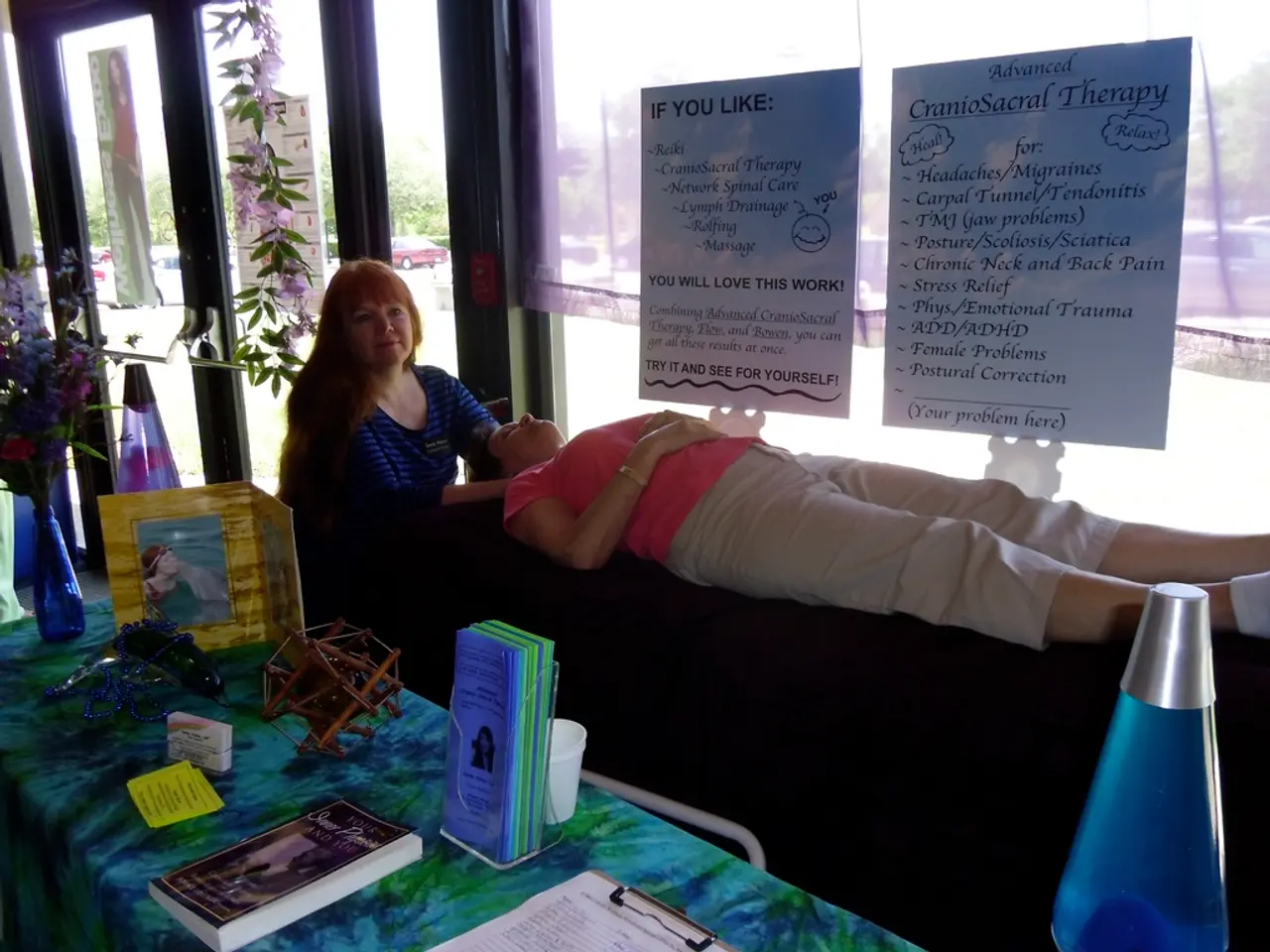Strategies for Boosting Determination and Mental Push
In our fast-paced world, maintaining motivation and avoiding burnout can be a challenge. Fortunately, neuroscience offers insights into effective strategies for enhancing mental drive and resilience.
Creating "dopamine fasting" windows can help reset sensitivity and restore motivation. Dopamine, a neurotransmitter responsible for pleasure, anticipation, and goal-oriented behavior, plays a significant role in motivation. By avoiding quick dopamine fixes like excessive social media or snacking, and instead engaging in activities that provide more balanced dopamine release—such as novel experiences, moderate physical movement, social connection, and task completion—motivation circuits can be recalibrated, avoiding burnout from overstimulation.
One way to boost motivation is through behavioural activation. Neuroscience shows that motivation often follows action rather than precedes it. Starting with small, manageable tasks can "jumpstart" the brain’s prefrontal cortex, creating momentum and reducing inertia.
Another approach is using micro-goals to reduce threat response. Breaking larger goals into tiny, non-threatening steps helps prevent overwhelm and reestablishes trust with oneself. This lowers the brain’s resistance to effort, making sustained motivation easier.
Cognitive cross-training is another key strategy. Just as athletes train different muscles, exercising varied cognitive domains—such as developing creativity if analytical, or social intelligence if introverted—prevents mental stagnation and builds a more adaptable, motivated mind.
Emotional intelligence and control are also crucial. Learning to influence and direct emotions purposefully—rather than suppress or ignore them—enables using emotions as tools for peak performance and sustained drive.
Sleep and physical movement are essential components of a motivated lifestyle. Prioritizing high-quality sleep (regarded as a "superpower" for mental performance) and regular physical activity replenish mental energy and reduce burnout risk.
Regarding nootropics, Magnesium Glycinate supports relaxation and cognitive function, potentially helping motivation indirectly by improving sleep and reducing anxiety. Other nootropics like Bacopa Monnieri and Citicoline (Cognizin®) can enhance motivation and drive by providing brain support and boosting mental energy, focus, and mood stability.
People-pleasing behaviours can hijack dopamine reward circuits, causing emotional exhaustion and reduced authentic motivation. Setting boundaries and rewiring reward pathways through consistent practice can restore healthier motivational states over weeks to months.
In summary, effectively boosting motivation and avoiding burnout involves action-oriented behavioural activation, setting micro-goals, balancing dopamine stimuli, cross-training cognitive skills, emotional self-regulation, good sleep, movement, and carefully selected supplements like Magnesium—all supported by brain plasticity and reward system modulation principles from neuroscience.
- By maintaining "dopamine fasting" windows and avoiding quick dopamine fixes, we can reset our motivation’s sensitivity and restore it.
- The neurotransmitter dopamine, responsible for pleasure, anticipation, and goal-oriented behavior, significantly influences motivation.
- Engaging in novel experiences, moderate physical movement, social connection, and task completion provides a balanced dopamine release, helping motoricate circuits.
- Neuroscience demonstrates that motivation frequently follows action rather than precedes it; starting with small tasks can create momentum and reduce inertia.
- Breaking larger goals into tiny, non-threatening steps through micro-goals helps prevent overwhelm and reestablishes trust with ourselves, lowering the brain’s resistance to effort.
- Cognitive cross-training, like developing creativity or social intelligence, prevents mental stagnation and strengthens a more adaptable, motivated mind.
- Emotional intelligence and control are essential; learning to influence and direct emotions purposefully can lead to peak performance and sustained drive.
- Prioritizing high-quality sleep, Magnesium supplements like Magnesium Glycinate, and regular physical activity replenish mental energy and reduce burnout risk.
- Bacopa Monnieri and Citicoline (Cognizin®) are nootropics that can enhance motivation and drive by providing brain support, boosting mental energy, focus, and mood stability.
- People-pleasing behaviors can steal dopamine reward circuits, causing emotional exhaustion and reduced authentic motivation; setting boundaries and rewiring reward pathways restores healthier motivational states over time.




